Whatever the corporate occasion, understanding how to plan an event step-by-step will not only save you stress and time, but help you create a truly unforgettable business event. In this article we give you valuable step-by-step tools and advice to help you achieve your goals – however ambitious!
1. Prepare for your event – Define what you hope to achieve from your event.
It’s important to work out what you want to achieve from your event and to stick to it. Develop an event outline and checklist to help you to work out your objectives and refer to it continually throughout the event process.
Are your conference or event ideas practical?
The problem is that if you are not thoroughly and strategically prepared, as your event develops and evolves, you are likely to find you have already locked in dates, places, venues and people that later become inappropriate or impractical.
Event and conference timeline.
Creating a timeline will force you to work backwards from your proposed event date and build in all the necessary lead-times for each activity.
Flexible event budgets
Developing an accurate budget and allowing flexibility for unexpected expenses, will enable you to prioritise how and where you will spend your money.
2. Plan your event – Ask questions when planning your event
You should be asking yourself a series of questions that will help you make the right decisions. Consider: How will you pay for the event? Do you need funding and can you seek sponsorship? Do you need permits for your event? Contact your local council. Do you need permission or licenses to use audio-visual materials? Do you need permission to post advertising material in public areas? Does your venue need access for older or disabled people? Do you need a sign language or other language interpreter?
Get help planning your event or conference
Don’t try and plan a big event or conference alone. Form an organising committee to develop ideas for your conference planning efforts. Consider hiring a professional conference organiser (PCO) to take the legwork out of finding venues, services and quotes for your event.
Event Activity Plan – your event planning checklist
Draw up an Event Activity Plan, complete with a ‘to do’ checklist and deadlines, covering every activity that needs to happen in planning your event. Detail likely activities leading up to your event such as deadlines, contact details, responsible staff and notes.
3. Promote your event – Marketing your event
To get the right guests to your business event they first need to know it’s on — and be excited by the idea of attending. Learn how to market your event effectively through promotional material, traditional and online media. Do not rely on one method of communication for your event. Be mindful that it can take months to organise and produce some promotional products and publications. To ensure the ongoing success of your event you need to put effort into promoting them well.
Start promoting your event or conference as early as possible
You want to get into the calendars of time-stressed executives and delegates before they agree to other obligations. Remind guests about the event shortly before the date with a “See You There” message.
Encourage event delegate and guest participation
Be succinct and to the point, but don’t make the invitation so short that it fails to give enough reasons for guests to attend. Ensure your audience knows why they should participate. Be sure the promotional copy includes all the registration, cost, date and address details.
Focus on selling the benefits of attending your event
Include information about what guests will take home in terms of new knowledge or networking opportunities, or something tangible, such as workbooks, white papers or checklists.
4. Turn wrongs into rights – Stay calm when problems arise
Become an event troubleshooter. Something usually does and probably will go wrong at your event. However, it’s often only the event organiser who knows about the problem. Don’t panic! Keep a running sheet handy and try to stay one or two steps ahead of the schedule. If there’s a positive and relaxed atmosphere at an event, smaller mistakes tend to go unnoticed. If things do go wrong and before making a major decision to rectify a problem, share it with the committee to gain a fresh perspective on your solution.
Recheck everything
A week before your event, recheck everything, from attendees to suppliers. Make notes of things that could possibly go wrong, and develop a contingency plan.
Arrive early at your conference or event
Arrange for all your event organiser team members to arrive early so you can brief them. This will buy you some extra time if changes need to be communicated.
Post clear signs for event guests and suppliers
Hang up visible signs for event guests, team members and suppliers. Ensure there are signs everywhere people go, from bus stops and parking areas to the location itself.
Keep in contact with your event team and venue staff
Write up a contact list of everyone involved in the event that you may need to speak to, and hand it out to your event team. If possible, use a radio system to stay in touch with venue staff and your team members. This gives you immediate access to help when you need it.
5. Evaluation – Request feedback – Conference or Event surveys
Ask guests who attended your event to give feedback. To gather this data, prepare a short survey. Ask the survey questions either at the end of the event, or send an invite to guests asking them to participate in the survey with a response time frame. Combine this with event photos on your website to increase responses.
Meet with your team post-event
About a week after the event, schedule a meeting with your event team. Discuss what went well and what didn’t. Write up notes from this meeting or put together a post-event evaluation form so that you – or your successor – has a good guide for the next event.
Thank conference and event guests
Write letters or emails to all the guests thanking them for attending. Write to all the speakers, entertainers and venues thanking them for their contribution: this will create a good lasting impression, and enhance future relationships.
Tell the media about your event
Write a media release and let the media know what happened at your event. Now that your event has actually happened, you’ll have more to say (and photographs), which will make it more likely for them to pick the story up. This is invaluable exposure to help make your event a success next time, and to promote your company.






